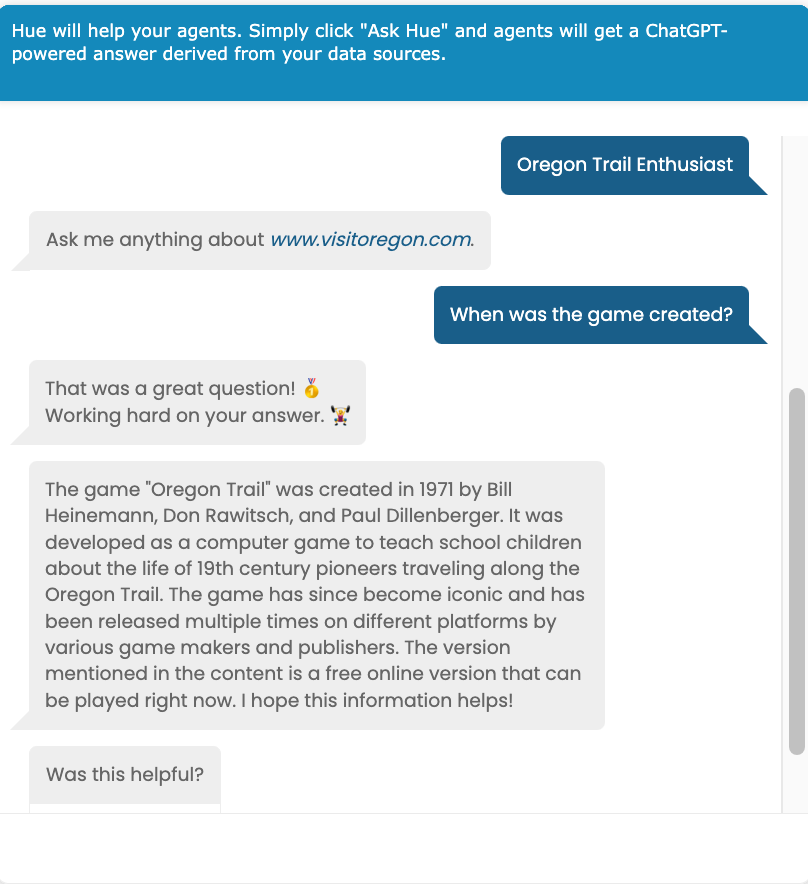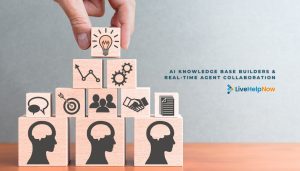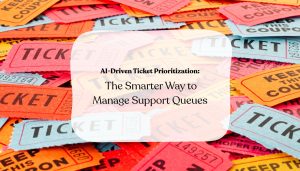Knowledge management systems (KMS) have served as essential tools to streamline information gathering, storage, and retrieval processes. Harnessing the power of artificial intelligence (AI) technologies like ChatGPT adds an extra layer of efficiency and interactivity to these systems. In this article, we will explore various ways businesses can integrate knowledge management systems with ChatGPT to unlock its full potential throughout their operations.

Knowledge Management System and ChatGPT Examples
Before diving into the integration details, let’s take a closer look at some real-world scenarios where knowledge management systems and ChatGPT work hand in hand.
KMS and Chat GPT in Education
In the education sector, a Knowledge Management System (KMS) can play a crucial role in enhancing the learning experience for students. Imagine a scenario where a student is studying a complex subject and comes across a challenging concept. With a KMS in place, the student can easily access relevant learning materials, such as textbooks, lecture notes, and supplementary resources. However, sometimes these resources might not provide the clarity or personalized explanations that the student needs.
This is where ChatGPT comes into play. As an advanced conversational AI model, ChatGPT can assist students by answering their questions and providing personalized explanations. Students can simply type in their queries, and ChatGPT will generate detailed and contextually relevant responses. Whether it’s clarifying a difficult concept or providing additional examples, ChatGPT can help students grasp the subject matter more effectively.
While some view the emergence of AI as a threat to the educational process, others believe that it can help students. Daniel Oppenheimer, Ph.D., a professor of psychology at Carnegie Mellon University in Pittsburgh belongs to the latter. He believes ChatGPT can help student enhance their critical thinking skills.
BLOCKQUOTE: “ChatGPT teaches students to ask better questions and then defend those questions, which could help them become real scientists.” (Daniel Oppenheimer, Ph.D, American Psychological Association, June 2023.)
LMS and ChatGPT in Customer Support
Similarly, in the customer support industry, a KMS can store a comprehensive knowledge base containing information about products, services, and common inquiries. This knowledge base serves as a valuable resource for customer support representatives, enabling them to quickly access accurate and up-to-date information.
However, relying solely on a knowledge base can sometimes be time-consuming, especially when dealing with a high volume of customer inquiries. This is where ChatGPT can significantly improve the efficiency of customer support operations. By integrating ChatGPT as an intelligent chatbot, common inquiries can be resolved instantly without the need for human intervention.
ChatGPT can understand customer queries, interpret their intent, and provide relevant and accurate responses. Whether it’s checking order status, troubleshooting technical issues, or providing product recommendations, ChatGPT can handle a wide range of customer inquiries with ease. The AI tool can resolve repeated customer inquiries and provide answers to the most common questions.
These examples demonstrate the power of ChatGPT knowledge base capabilities of a KMS with the conversational AI capabilities of ChatGPT. By leveraging the strengths of both systems, organizations can enhance learning experiences, improve customer support efficiency, and provide personalized assistance to users. LMS consulting services can further optimize knowledge and learning systems by aligning capabilities to specific organizational objectives and workflows.
Benefits of Using ChatGPT in Knowledge Management
Conversational Interface for Ease of Use
Integrating ChatGPT with your existing knowledge management system can significantly enhance its efficiency and usability. ChatGPT can serve as a conversational interface, allowing users to interact with the knowledge base and obtain the information they need more quickly and easily. The natural language processing capabilities of ChatGPT enable users to ask questions in their own words, effortlessly navigating through the vast knowledge base without the need for complex search queries.
Assistance at Customer’s Fingertips
Imagine a scenario where a customer needs assistance with a specific product feature. “What are the best practices for optimizing Product X’s performance?” ChatGPT can analyze the question, understand the user’s context, and recommend specific articles or resources that address the optimization techniques for Product X. This intelligent suggestion feature not only saves users from having to manually search for relevant information but also exposes them to additional valuable resources they may not have discovered otherwise.
Continuous Learning and Improvement
Another advantage of ChatGPT knowledge base integration is its ability to learn from user interactions. As users engage with ChatGPT and ask questions, the system can gather valuable insights about the most common queries, pain points, and areas where the knowledge base may need improvement. This feedback loop enables continuous refinement of the knowledge base, ensuring that it remains up-to-date, accurate, and relevant.
Internal and External Use
By empowering users to efficiently find the information they seek, your organization can save time, reduce support costs, and ultimately improve customer satisfaction. Customers will appreciate the ease of use and quick access to relevant information, leading to a positive overall experience with your products or services.
An example of such technology at work, Hue, LiveHelpNow’s ChatGPT-powered customer support tool, quickly finds information within a website and uses it to answer inquiries in real time. Similarly, the tool can search knowledge bases and other data sources.

ChatGPT knowledge base integration can also benefit internal knowledge management within your organization. Employees can leverage ChatGPT to quickly retrieve information, collaborate more effectively, and make informed decisions based on the knowledge base.
Integrating ChatGPT with Internal Knowledge Base
If you already have an internal knowledge base system in place, integrating ChatGPT can be a straightforward process.
Structure and Organization
The first step is to ensure that your knowledge base is properly structured, with well-organized articles, tags, and categories. This organization helps ChatGPT understand the scope and context of the information.
Having a well-structured internal knowledge base is crucial for effective integration with ChatGPT. It allows the model to navigate through the vast amount of information and provide accurate responses. Imagine a knowledge base as a library, and each article, tag, and category as a book, chapter, and section respectively. This organization not only helps ChatGPT locate the relevant information quickly but also enables it to grasp the interconnectedness of different topics.
AI Training
Once your knowledge base is properly structured, the next step is to train ChatGPT using your internal knowledge base data. By exposing ChatGPT to your organization’s specific knowledge domain, it can better understand and respond to queries related to your industry or business. Fine-tuning the model with relevant data ensures that users receive accurate and tailored responses when interacting with the knowledge base. Try an example of AI chatbot trained on your website instantly.
Training ChatGPT with your internal knowledge base data is like providing it with a crash course on your organization’s expertise. It immerses the model in the intricacies of your industry, allowing it to learn the specific jargon, concepts, and nuances that are unique to your business. This deep understanding empowers ChatGPT to provide insightful and contextually appropriate responses, enhancing the overall user experience.
Fine-tuning the model with your internal knowledge base data helps ChatGPT develop a sense of familiarity with your organization’s processes, products, and services. It becomes well-versed in the intricacies of your business operations, enabling it to provide accurate and up-to-date information to users. This level of expertise not only enhances the user experience but also builds trust and credibility among your customers or employees.
Harnessing ChatGPT for Rapid Knowledge Base Article Creation
Knowledge management systems typically require dedicated resources to create and update articles within the knowledge base. However, ChatGPT can be harnessed to automate and expedite this process. By utilizing the few-shot learning capabilities of ChatGPT, you can train it to generate high-quality articles based on a few examples or prompts.
This approach not only saves time and resources but also allows subject matter experts to focus on more complex tasks, leaving routine article creation to ChatGPT. By letting ChatGPT assist in generating new content and updating existing articles, your organization can keep its knowledge base up-to-date and relevant without overwhelming your knowledge management team.
One of the key advantages of using ChatGPT for knowledge-based article creation is its ability to learn from a few examples. This means that even with limited training data, ChatGPT can still generate high-quality articles that align with your organization’s style and tone.
By harnessing ChatGPT for article creation, experts can focus on more complex tasks, just as preparing with Microsoft AI-102 practice tests dumps helps AI professionals hone their skills. Instead of spending hours on routine article updates, they can focus on more complex tasks that require their expertise.
Agent Assist with ChatGPT
Integrating ChatGPT into your customer support workflow can significantly enhance agent productivity and efficiency. By implementing an agent assist system, agents can use ChatGPT as a real-time tool to assist them in answering customer queries.
With ChatGPT’s ability to understand and retrieve information from your knowledge base, it can swiftly provide agents with relevant articles, answers, or suggestions to help resolve customer issues effectively. This collaborative approach not only saves time but also ensures consistent and accurate responses to customer inquiries.
Integrating Knowledge Management Systems with ChatGPT
ChatGPT knowledge base integration opens up a world of possibilities for organizations seeking to maximize the value of their information assets. By combining the knowledge management capabilities of a KMS with the conversational AI power of ChatGPT, you can enhance user experience, automate processes, and improve overall efficiency. Whether it’s creating a fully-automated chatbot, empowering agents with real-time assistance, or optimizing knowledge base article creation, the potential benefits are ample.




